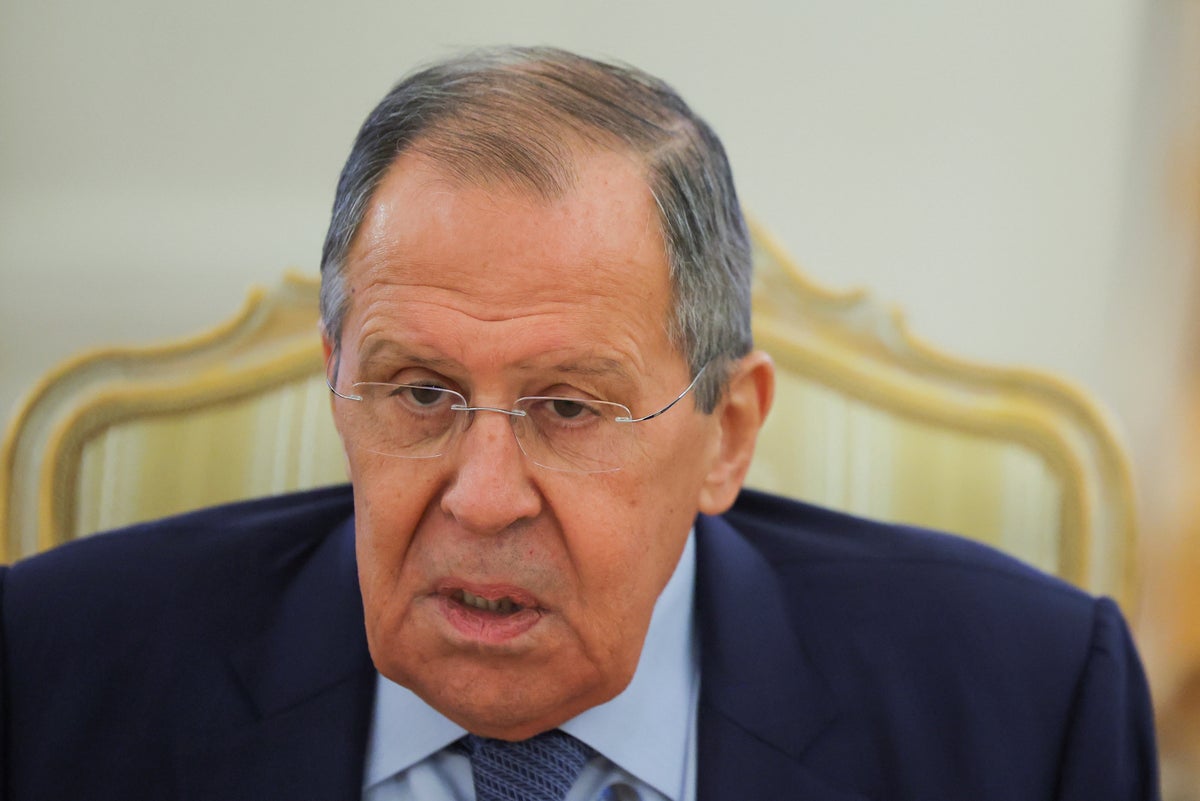
Russia will not negotiate ending its invasion of Ukraine on the terms laid out by Volodymyr Zelensky’s “peace formula”, the country’s foreign minister Sergei Lavrov has said.
The Ukrainian president had pitched his 10-point plan to world leaders at a Group of 20 (G20) summit in Bali in November.
Mr Lavrov criticised Mr Zelensky and alleged the Ukrainian president “cherishes the illusion of achieving, with the help of the West, the withdrawal of our troops from the Russian territory of Donbass, Crimea, Zaporozhye and Kherson regions, the payment of reparations by Russia, admission of guilt in international tribunals, etc”.
“It is obvious that Kyiv is not ready for dialogue,” he said in an interview with Russian state-owned Ria Novosti on Thursday.
“We will certainly not talk to anyone on such terms,” Mr Lavrov said.
The remarks come after the Ukrainian leader urged Russian ally India’s prime minister Narendra Modi earlier this week to play a more pro-active role in supporting the implementation of his “peace formula”.
In his first surprise visit outside Ukraine since the war began, Mr Zelensky earlier visited Washington and said US president Joe Biden had endorsed the plan.
The 10-point formula envisages steps to include nuclear safety, food security, a special tribunal for alleged Russian war crimes and a final peace treaty with Russia.
Kremlin spokesman Dmitry Peskov also dismissed the peace plan and reiterated that Kyiv must accept Moscow’s annexation of four regions: Luhansk and Donetsk in the east and Kherson and Zaporizhzhia in the south.
He said there could be no peace plan “that does not take into account today’s realities regarding Russian territory, with the entry of four regions into Russia”.
Mr Lavrov added that if and when Moscow returns to “joint work” with the West, it will be on the conditions of new principles.
“One of the lessons is that if and when we return to joint work, then it will have to be conducted on a new basis, as the old approaches no longer work,” Mr Lavrov said.
On Wednesday, Mr Putin has signed a decree banning the supply of oil and oil products to nations participating in the Western price cap for five months from the start of February.
As part of an international campaign to curb Russia’s ability to wage war, the G7 nations and Australia announced earlier this month that the $60 (€57; £48) per barrel price cap would come into effect on 5 December or “very soon thereafter”.
It aims to reduce Moscow’s income from selling oil while tempering the potential for any spike in global prices as the Ukraine war enters its tenth month.
Russia announced the ban on oil products to countries and entities adhering to the price cap as a retaliatory move, beginning from 1 February to 1 July.
Fighting continues to rage in several Ukrainian cities, with Russia installing “Grad” multiple-launch-rocket systems at the Zaporizhzhia nuclear power plant, which is Europe’s largest, according to Ukrainian officials.
This has raised fears that the plant could be used to further attack Ukrainian territory, along with heightening radiation dangers.







